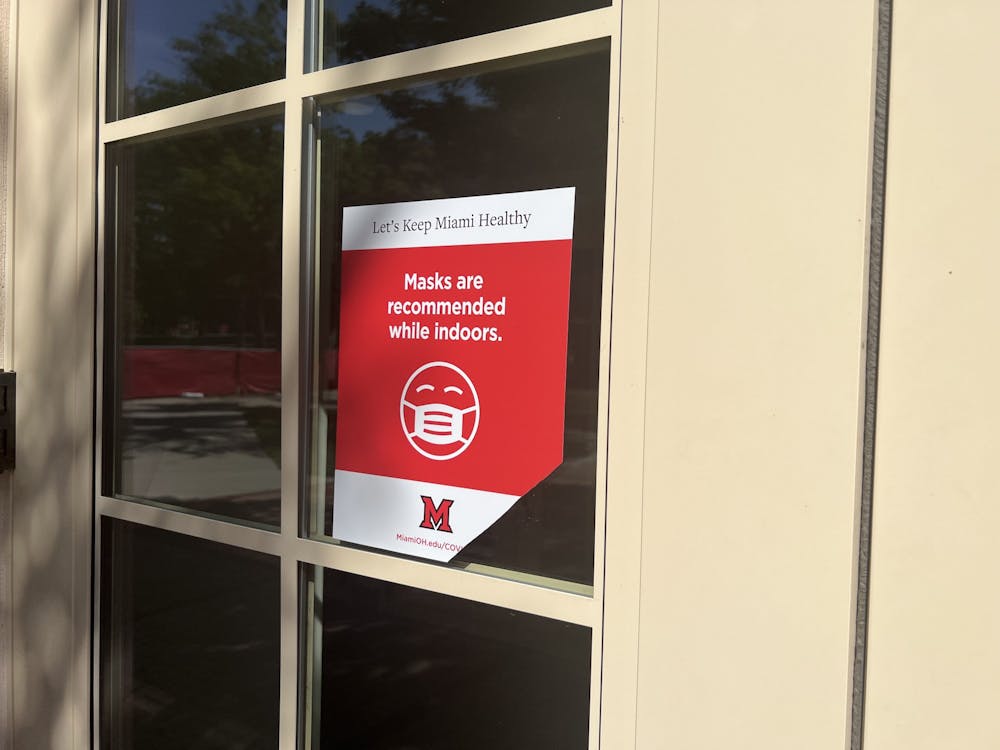Students will not be required to wear masks on Miami University’s campus or participate in surveillance testing this upcoming fall, despite Butler County’s high risk status.
During a webinar on Aug. 5, Jayne Brownell, vice president for Student Life, alongside other members of administration, outlined the university’s plans to address COVID-19 this upcoming semester.
Although positive cases and hospitalizations from COVID-19 have recently increased in Butler County, Brownell announced that the university will encourage personal responsibility rather than mandate masks.
Unlike the past two years, there will be no arrival testing for on-campus students. However, the COVID-19 vaccination is required for all residential students, unless exempted.
Symptomatic testing will be available for students, staff and faculty with an appointment through Student and Employee Health Services.
Several on-campus buildings — including Armstrong Student Center, King Library and the Recreation Center — will continue to offer at-home antigen tests. These tests require a Miami ID and are limited to two per person.
If a student or staff member tests positive for COVID-19, they must report it to the university and isolate for a minimum of 5 days. On-campus students can return home, stay at a hotel or a friend’s house or request temporary housing from the university. Wells Hall will be an isolation space for positive cases, and rooms will include bedding, water, a microwave and a TV.
“For isolation, we have a congregate living environment with residence halls, and we do have an obligation, both legal and ethical, to prevent the spread of disease on our campuses,” Brownell said.
However, Miami won’t contact trace. People who are exposed are encouraged to follow CDC guidelines for quarantine but don’t have to leave their residence hall.
Although masks won’t be mandatory on-campus, except for in healthcare settings or with a positive test, students should carry a mask with them at all times. Staff and faculty members may request others to wear masks but cannot require it, even if an individual is exhibiting symptoms.
There will be no penalty for refusing to mask-up.
Students experiencing symptoms or feeling ill should stay home and notify their professor via email.
Enjoy what you're reading?
Signup for our newsletter
“For too many years, for too many illnesses, people would go to school and work if they were ill,” Brownell said. “If there is anything that COVID changed, I hope that this has broken us all of the habit.”
Before ending the presentation, Brownell briefly addressed the growing spread of monkeypox, reassuring community members that the university has already begun preparing.
“We are aware,” Brownell said. “We are paying attention. We are meeting on this. We’ve already been talking to the Department of Health. We’re collecting information from the American College Health Association.”
A communication about the university’s response to monkeypox will be sent to students, faculty and staff in the coming weeks.




